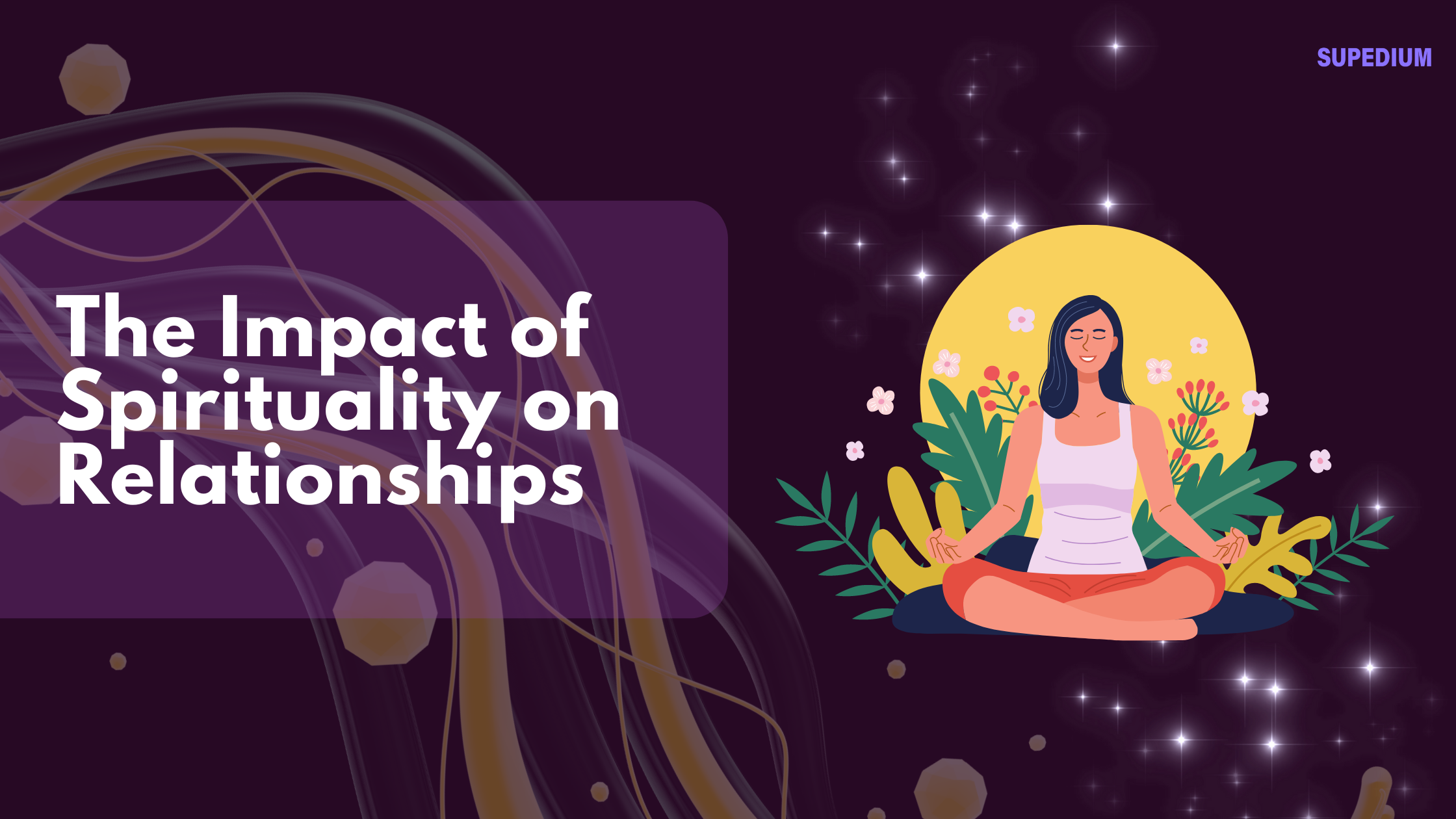Table of Contents
![]()
Introduction
Spirituality, a deeply personal and subjective experience, often intersects with various aspects of life, including relationships. Unlike religion, which typically involves organized practices and beliefs, spirituality is more about individual connections to a higher purpose or transcendent reality. Understanding how spirituality impacts relationships is crucial as more individuals seek holistic approaches to personal well-being and social dynamics.
Theoretical Framework
Spirituality, within psychological and sociological frameworks, is considered a significant aspect of identity. It influences how individuals perceive themselves and their interactions with others. Central to spirituality are dimensions such as personal beliefs and values, a sense of purpose, and connections to something greater than oneself. These elements shape not only individual well-being but also the dynamics within relationships.
Positive Impacts of Spirituality on Relationships
1. Enhanced Communication
Spirituality can improve communication between partners by fostering greater empathy and understanding. When individuals share spiritual beliefs or values, they often find it easier to express themselves openly and honestly. This mutual understanding can create a safe space for vulnerability, which is crucial for effective communication.
2. Strengthened Emotional Bonds
Shared spiritual values and practices can significantly strengthen emotional bonds between partners. Spirituality often emphasizes the importance of support and comfort, which can deepen the connection during challenging times. Couples who engage in spiritual activities together, such as meditation or prayer, may experience a heightened sense of closeness and unity.
3. Improved Conflict Resolution
Spirituality can offer tools for better conflict resolution. Many spiritual traditions emphasize forgiveness, reconciliation, and compassion, which can help reduce stress and anxiety during disagreements. By focusing on these principles, partners can approach conflicts with a mindset geared toward resolution and healing rather than blame and resentment.
4. Greater Sense of Community and Support
Participating in a spiritual community can provide additional support and reinforce relationships. Shared rituals, values, and social networks can offer a sense of belonging and stability. For instance, couples involved in spiritual communities may benefit from a broader network of supportive friends and mentors.
Challenges and Potential Negative Impacts
1. Divergent Spiritual Beliefs
Differences in spiritual beliefs can create significant challenges in relationships. Conflicting views may lead to disagreements over important life decisions and lifestyle choices. Navigating these differences requires open communication and mutual respect, and sometimes professional guidance may be necessary to address these issues constructively.
2. Spiritual Bypassing
Spirituality, when misused, can lead to “spiritual bypassing,” where individuals use spiritual beliefs to avoid confronting real-life issues. This avoidance can prevent addressing fundamental problems in relationships, leading to unresolved conflicts and unaddressed personal growth areas. It is essential for individuals to balance their spiritual practices with practical problem-solving and self-awareness.
3. Overemphasis on Spirituality
An overemphasis on spirituality can sometimes detract from addressing practical aspects of a relationship. Relying solely on spiritual solutions may lead to neglecting crucial elements such as financial management, parenting, or everyday responsibilities. A balanced approach that integrates spirituality with practical problem-solving is necessary for a healthy relationship.
Case Studies and Examples
1. Positive Case Studies
Many couples find that shared spiritual practices enhance their relationship. For example, couples who regularly engage in joint meditation or spiritual retreats often report increased intimacy and mutual understanding. Communities with strong spiritual bonds, such as those participating in communal rituals or support groups, also illustrate the positive impact of shared spirituality on relationships.
2. Negative Case Studies
Conflicts can arise when partners hold divergent spiritual beliefs. For instance, couples with differing views on spirituality might struggle with decisions regarding family traditions, lifestyle choices, or even moral perspectives. In some cases, individuals might use spirituality to bypass addressing deeper issues within the relationship, leading to unresolved conflicts and dissatisfaction.
Practical Applications
1. Incorporating Spirituality into Relationship Counseling
Spirituality can be integrated into relationship counseling by exploring shared values and addressing spiritual conflicts. Techniques such as spiritual assessments and guided discussions on values and beliefs can help partners understand each other’s perspectives and find common ground.
2. Developing Personal and Shared Spiritual Practices
Couples can benefit from developing personal and shared spiritual practices. Setting goals for spiritual growth together, such as regular meditation or attending spiritual events, can strengthen their connection and enhance relational dynamics. It is crucial to ensure these practices complement rather than replace practical relationship skills.
3. Resources and Tools
Various resources are available for individuals and couples interested in exploring spirituality in their relationships. Books on spirituality and relationships, workshops, and online resources offer valuable insights and practical advice. Seeking professional guidance from counselors with experience in integrating spirituality into relationship work can also be beneficial.
Conclusion
Spirituality can profoundly impact relationships, offering both benefits and challenges. On the positive side, it can enhance communication, strengthen emotional bonds, improve conflict resolution, and provide a greater sense of community and support. However, challenges such as divergent beliefs, spiritual bypassing, and overemphasis on spirituality must be managed carefully. Balancing spirituality with practical relationship skills is essential for fostering healthy and meaningful connections. Future research could further explore these dynamics, particularly in diverse cultural and social contexts. Ultimately, spirituality can play a significant role in enriching relationships when approached with mindfulness and balance.
Share This





Be the first to comment